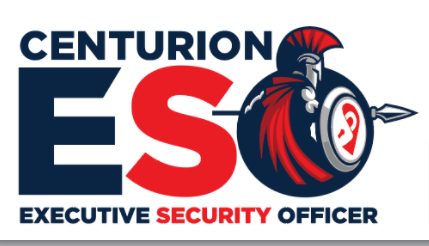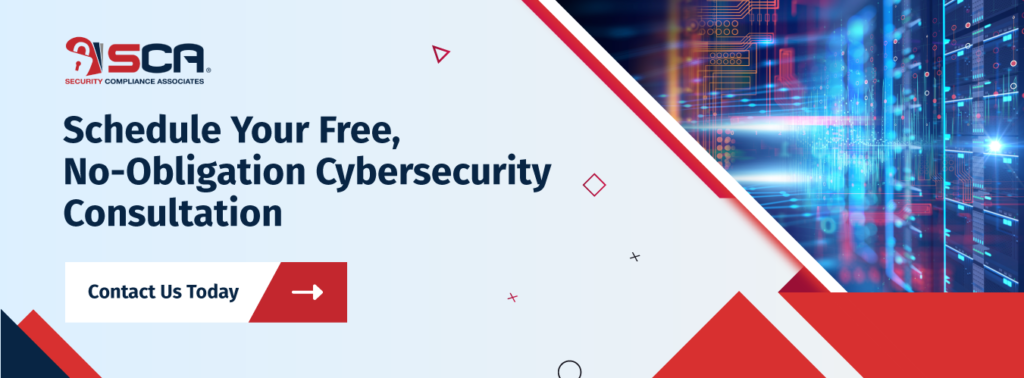
Virtual CISO Requirements: What to Look For
We hope you’ve been following this blog for a while. If that’s the case, you’ll know that the cybersecurity world is highly fast-paced regarding changing threats, security updates, and regulatory requirements. Depending on your firm’s size and budget, you may or may not have a dedicated Chief Information Security Officer (CISO). Whether you have an in-house expert or are interested in outsourcing the role, which is increasingly common today, we’ve covered what you should look for in the right security solution.
Finding the right CISO for your organization doesn’t have to be rocket science! In this article, we unpack some of their core responsibilities and discuss the options available to organizations of any size to ensure the highest level of cybersecurity, regardless of industry.
Schedule a Security Consultation With An SCA Expert Today
What Does a CISO Do?
As we’ve established, cybersecurity is a fast-paced, complicated game, and a CISO is an excellent way to invest in protecting your organization’s data and digital assets. However, their job description can be a little overwhelming. Let’s look at some of their main responsibilities so you can begin your search for the right CISO service provider, whether they are a full-service team or even a virtual CISO. Either way, their responsibilities are going to be comprehensive.
Introduce new technologies
First, CISOs are responsible for introducing new technologies to organizations. They investigate the latest trends, network with other tech leaders, and learn about what could be useful in your particular organization or industry. They also attend trade shows and try out the latest tech toys to see what may make sense to spend time researching to safeguard your data.
Offer guidance and leadership to IT personnel
From the field, CISOs bring the pertinent information back to the relevant stakeholders to hold important conversations about where the cybersecurity strategy should go. As the linchpin of the cybersecurity strategy, the CISO provides invaluable mentorship and direction to IT personnel, fostering a culture of vigilance and accountability. By aligning the efforts of the IT team with overarching cybersecurity objectives, the CISO empowers individuals to safeguard digital assets and mitigate risks proactively.
Prepare budgets and financial forecasts as well as allocate financial resources involving security operations and maintenance
A skilled CISO is responsible for preparing meticulous budgets and accurate financial forecasts and meticulously allocating resources to support robust security operations and maintenance. By striking a delicate balance between cost-effectiveness and efficacy, the CISO ensures that every financial investment bolsters the organization’s cyber resilience.
Perform audits and risk assessments
Vigilance is the cornerstone of effective cybersecurity, and a diligent CISO understands the importance of conducting thorough audits and risk assessments. By meticulously scrutinizing existing systems and processes, the CISO identifies potential vulnerabilities and assesses the likelihood and impact of various cyber threats. Armed with actionable insights, the organization can proactively implement targeted security measures to mitigate risks and enhance overall resilience.
Coordinate data recovery and investigative efforts
Swift and coordinated action is paramount after a cybersecurity incident. As the orchestrator of response efforts, the CISO is pivotal in coordinating data recovery and investigative endeavors. By leveraging established protocols and collaborating seamlessly with internal teams and external partners, the CISO ensures a rapid and effective response, minimizing downtime and mitigating the impact of security breaches.
Ensure compliance with standards, regulations, and laws
As the guardian of compliance, the CISO is responsible for ensuring adherence to pertinent regulations, standards, and laws. By staying abreast of evolving compliance mandates and implementing robust governance frameworks, the CISO safeguards the organization from legal and regulatory repercussions while bolstering trust and credibility
Learn about SCA’s Vulnerability Assessments now!
Create reports
Effective communication is essential in conveying cybersecurity’s intricacies to stakeholders across the organization. A proficient CISO excels at distilling complex technical data into insightful reports that resonate with diverse audiences. By presenting key findings, trends, and performance metrics clearly and concisely, the CISO empowers stakeholders to make informed decisions and prioritize strategic cybersecurity initiatives effectively.
Discuss technical details and information with nontechnical personnel in an accessible manner
Bridging the gap between technical complexity and organizational strategy is a hallmark of effective leadership in cybersecurity. A skilled CISO can articulate technical details and information in a manner that resonates with nontechnical personnel. By fostering a culture of transparency and collaboration, the CISO empowers stakeholders from across the organization to actively engage in cybersecurity discussions, driving awareness and collective vigilance against cyber threats.
Of course, there are so many more facets to the role of a CISO, whether they are a virtual CISO or an in-house professional, but these are the major aspects of their job description. Understanding their everyday tasks can help when it comes to determining how you want to handle your cybersecurity strategy.
CISO Options: What to Look For
Choosing the right approach to engage the correct CISO is paramount to ensuring your organization’s cybersecurity. Here are three distinct options to consider, each offering its unique benefits and considerations:
Outsourcing CISO as a Service: Virtual CISO and Fractional CISO
Outsourcing the role of a CISO as a service presents a compelling solution for organizations seeking specialized expertise without the commitment of a full-time hire. By partnering with external providers offering CISO services, organizations can tap into a wealth of knowledge and experience tailored to their specific needs.
What some people may not realize is that the terms Virtual CISO and Fractional CISO are interchangeable. They both provide an approach that offers flexibility, scalability, and cost-effectiveness. They allow organizations to access top-tier cybersecurity leadership without the overhead costs associated with an in-house hire. However, organizations must carefully vet potential service providers to ensure alignment with their cybersecurity objectives and cultural values. Usually, a quick discovery call is all you need to determine if the relationship will be a good fit!
Meet Centurion ESO: Your Elite Virtual CISO
In-house CISO
Establishing an in-house CISO position entails hiring a dedicated professional to spearhead the organization’s cybersecurity strategy from within. This approach fosters deeper integration with organizational objectives and facilitates seamless collaboration with internal stakeholders and departments.
An in-house CISO offers unparalleled familiarity with the organization’s unique challenges and opportunities, enabling swift decision-making and agile responses to emerging threats. However, recruiting and retaining qualified CISO talent can pose challenges, requiring a significant investment of time and resources in talent acquisition and development.
General Cybersecurity Consulting
Engaging in general cybersecurity consulting services can be a prudent choice for organizations seeking tailored guidance and strategic insights on an as-needed basis. Consulting firms specializing in cybersecurity offer expertise across various industries and use cases, providing actionable recommendations and best practices to enhance cybersecurity resilience.
This approach allows organizations to access expert guidance and support on specific projects or initiatives without the long-term commitment of hiring a full-time CISO. However, organizations must ensure clear communication and alignment of objectives with consulting partners to maximize the value of the engagement and drive tangible results.
Choosing your virtual CISO or CISO consultant depends on how comfortable you are with their ability to engage in the roles we discussed above. By carefully evaluating these CISO options and considering your organization’s unique needs and priorities, you can make an informed decision that strengthens your cybersecurity posture and safeguards your digital assets effectively. Whether you opt for outsourcing, an in-house hire, or consulting services, prioritizing cybersecurity leadership is essential in navigating the evolving threat landscape with confidence and resilience.
Do you still have questions? SCA Security is here to help you determine the best cybersecurity strategy to stay ahead of the cyber threat curve. Our four-step assessment process involves planning, discovery, reporting, and of course, flawless communication. Let’s talk about your CISO solution now!


